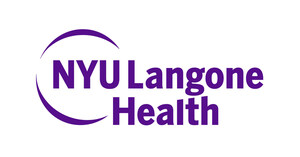
NEW YORK, Oct. 20, 2025 /PRNewswire/ -- A drug that harnesses the immune system to attack cancer cells has proved successful in preventing a rare and aggressive form of skin cancer from spreading to other organs when given immediately after surgery, a new study shows.
Led by researchers at NYU Langone Health and its Perlmutter Cancer Center, the study is the largest clinical trial to date to evaluate the use of pembrolizumab (Keytruda) to treat Merkel cell carcinoma after surgical removal of the tumor. The cancer is known to grow in the skin's outermost layer and in places that are exposed to the sun, such as the face, arms, and legs.
The researchers say their analysis showed that, numerically, pembrolizumab therapy results in a trend toward improvement in the amount of time patients with Merkel cell carcinoma are alive and without signs of the cancer. Two years after cancer surgery, 73% of patients taking pembrolizumab showed no signs of cancer recurrence, while fewer patients (66%) showed no signs of relapse among those who did not take the drug. However, the researchers point out this result was not statistically significant.
Another key observation was that one to two years posttreatment, study participants on pembrolizumab achieved a significant improvement in distant metastasis-free survival. Patients on pembrolizumab had a 42% lower chance of dying from their cancer spreading to other organs, such as bones, the liver, and lungs than those participants who did not receive the drug.
"Our study provides the first solid evidence that immunotherapy with pembrolizumab postsurgery may help people with Merkel cell carcinoma by preventing their cancer from returning in organs considered distant from the site of the original disease," said study lead investigator Janice Mehnert, MD.
"This is a positive development for people who are living with the highly aggressive cancer that is Merkel cell carcinoma," said Mehnert, who is director of the melanoma medical oncology program and associate director of clinical research at the Perlmutter Cancer Center.
A professor in the Department of Medicine at the NYU Grossman School of Medicine, Mehnert is presenting the findings of her team's study, known formally as ECOG-ACRIN EA6174, during the European Society for Medical Oncology meeting on Oct. 20 in Berlin.
Mehnert says because the National Cancer Institute (NCI), a member of the National Institutes of Health (NIH), considers Merkel cell carcinoma a rare tumor, conducting clinical trials for this disease requires national collaborations like this study included.
The advanced phase 3, multicenter trial was conducted at cancer centers across the United States from 2018 to 2023. It involved 293 men and women whose Merkel cell tumors had grown or had spread to other areas of the body. Researchers say the study was the largest completed trial to test the role of immunotherapy after surgery.
All study participants had surgery to remove their skin tumors, with 147 randomized to receive infusions of pembrolizumab postsurgery and 146 randomized to not receive the infusions. Study participants were then monitored to see whose cancer returned. Radiation therapy was also offered to patients in some cases after consultation with their physician.
Merkel cell carcinoma, also called neuroendocrine carcinoma of the skin, is rare, occurring in no more than 3 in 1 million people, most often in people over age 50 and as a bump on the skin. The cancer is known to spread fast and aggressively, with fewer than half of those with the disease surviving five years after diagnosis.
Pembrolizumab is a monoclonal antibody drug known as a PD-1 inhibitor. The drug treats many kinds of cancer and works by blocking a protective mechanism, the PD-1 protein receptor, that cancer cells use to avoid detection by the body's immune system. Blocking PD-1 allows immune cells to recognize harmful cancer cells as foreign to the body, and to then attack them like they would an invading virus or bacterium.
Funding support for this study was provided by the NIH, NCI's National Clinical Trials Network, and NCI grant R50CA282100.
Besides Mehnert, other study co-investigators are Sandra Lee, ScD, and David Miller, MD, PhD, at the Dana-Farber Cancer Institute in Boston; Brian Gastman, MD, and Donald Eicher, MD, at the Cleveland Clinic; Charles Hsu, MD, PhD, at the University of Arizona in Tucson; Gary Cohen, MD, at the Greater Baltimore Medical Center in Towson, Maryland; Pauline Funchain, MD, at Stanford University in Palo Alto, California; Evan Wuthrick, MD, at the Moffitt Cancer Center in Tampa, Florida; Jedd Wolchok, MD, PhD, at Weill Cornell Medicine in New York City; and Anuradha Chakravarthy, MD, and study senior investigator John Kirkwood, MD, at the University of Pittsburgh Medical Center.
About NYU Langone Health
NYU Langone Health is a fully integrated health system that consistently achieves the best patient outcomes through a rigorous focus on quality that has resulted in some of the lowest mortality rates in the nation. Vizient Inc. has ranked NYU Langone No. 1 out of 118 comprehensive academic medical centers across the nation for four years in a row, and U.S. News & World Report recently ranked four of its clinical specialties No. 1 in the nation. NYU Langone offers a comprehensive range of medical services with one high standard of care across seven inpatient locations, its Perlmutter Cancer Center, and more than 320 outpatient locations in the New York area and Florida. With $15.5 billion in revenue this year, the system also includes two tuition-free medical schools, in Manhattan and on Long Island, and a vast research enterprise.
Note: Abstract #6267, titled ECOG-ACRIN EA6174: Surgically Treated Adjuvant Merkel Cell Carcinoma with Pembrolizumab, is scheduled to be presented during the European Society for Medical Oncology meeting on Monday, Oct. 20, at 2:30 a.m. ET in the Cologne Auditorium, Messe Berlin, Berlin.
Media Contact
David March
212-404-3528
[email protected]
SOURCE NYU Langone Health System








Share this article